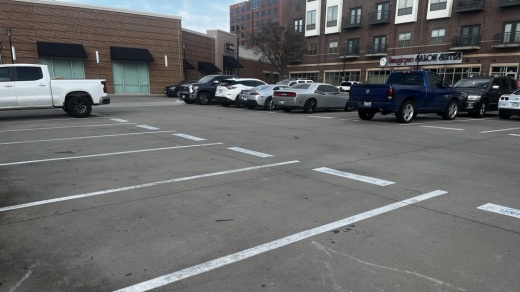As part of the study, the council is putting together a regional parking database to help inform area officials on ways to develop more efficient parking. Using a 2018 study, the council estimates potentially 40% of the region's parking spaces are typically unused.
The council is an independent policy board made up of officials from across the metroplex that oversee the transportation planning process for the region. The organization’s website states the process city planners use for determining parking needs often lacks information and can overestimate demand, leading to excess parking.
During the council's March 14 meeting, staff members said the council will be asking for property managers and owners from across DFW to volunteer their properties for multiday parking studies. The council's website states these studies will identify local demand, reduce the chance of unused parking and inform more accurate parking standards. The study will not include single-family housing developments or neighborhoods, the website states.
“What we’ll do with this [data] is try to inform parking policy by making sure our database is made up of a variety of [parking spaces] that represent different development types,” said Catherine Osborn, transportation planner with the council, during its March 14 meeting.
Osborn presented data at the meeting that estimates there could be 10 million cars in DFW by 2045 based on population growth estimates. She said the data shows there could be around 775 miles of combined land dedicated to parking by that time.
“It’s expensive to build parking, especially parking garages,” Osborn said. “Parking also takes away land in valuable areas that could be used for other purposes.”
When collecting data on a parking site, the council states it will look at total number of parking spaces, when peak use times are, nearby building occupancy numbers, special characteristics of each site, walkability of the area and nearby transit opportunities.
Those looking to volunteer a property or learn more about the study can visit www.nctcog.org/parking.





